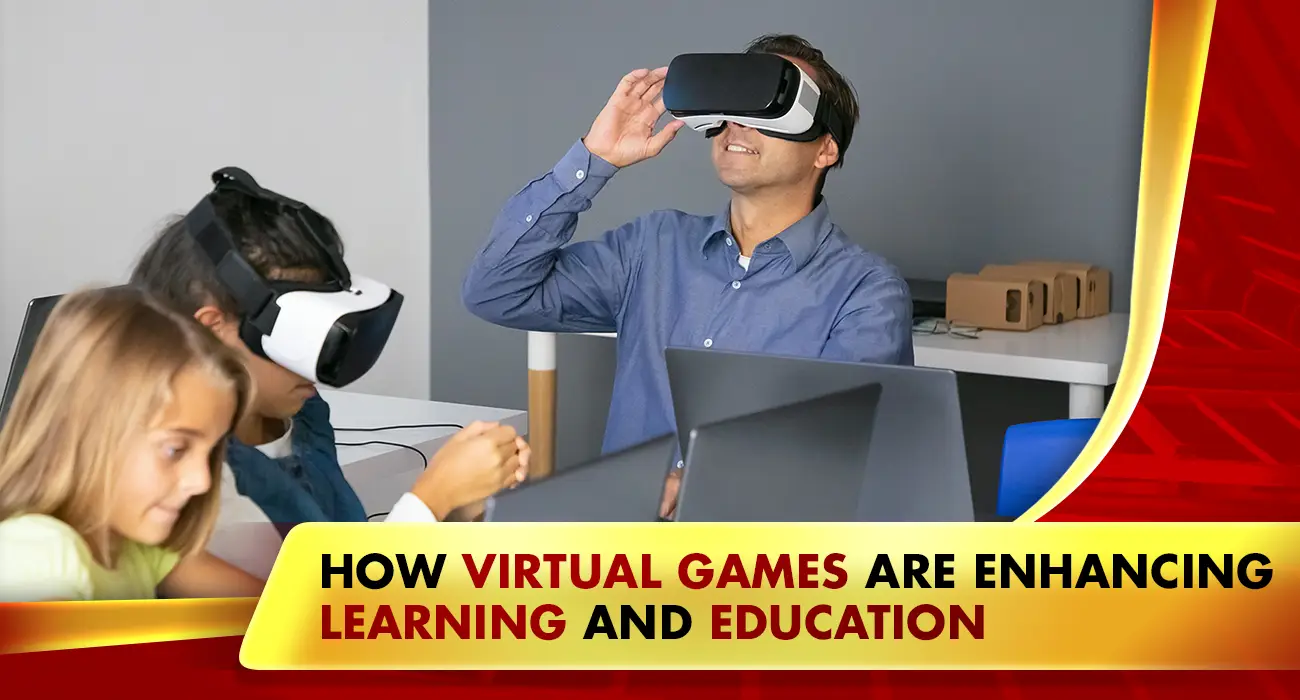The learning environment has changed dramatically over the last few years to embrace technological aspects in making more exciting and productive environments for learning. Some of these developments include virtual games, which now serve as a highly effective tool to enrich education and learning, as well as virtual games for office settings. Virtual games offer an approach that challenges the student to be more involved and motivated about lessons while retaining the information learned since it involves fun with teaching.
Environments for Immersion Learning
With virtual games, the learner can explore new concepts or ideas directly related to their learning, primarily because of the immersion into an immersive environment. For example, history-based games take students back to prehistoric times, giving them personal experiences about historical events. Since there is a tendency for students to learn and remember more about the knowledge provided in an involving context, this kind of immersion heightens learning and retention.
More Motivation and Involvement
One of the virtual games’ most critical educational values is the possibility of stimulating more significant interest in pupils. Nowadays, students are accustomed to much shorter attention spans to dynamic, engaging digital encounters; hence, they often find the approaches to teaching today. This appetite is addressed by virtual games that offer exciting tasks, goals, and rewards that may attract pupils’ attention. Such gamification elements that support the need of students to feel successful and pushed in class include leveling, badges, and mission completion.
Cooperation and Unity
Many online games are designed for cooperative play. This encourages children to work together and builds a sound communication system. Multiplayer video games enable players to collaborate to complete assignments, solve problems, and attain common goals. This cooperative nature of video games prepares students for group work and prepares them for real-life situations outside the classroom, where their efforts must converge. Students can practice negotiating, assigning tasks, and helping one another succeed by participating in virtual games.
Tailored Education Programs
Virtual games present the possibility of customized learning experiences based on each student’s requirements. Numerous instructional games include real-time challenges tailored to the player’s skill level. This flexibility will enable every student to progress at their own pace, which in turn will create a diversified learning environment. Virtual games can come in handy for students who could quickly fail within the regular classroom setup, where they may suffer from negative judgment from their peers or even the teachers.
Critical Thinking and Problem-Solving Skills
Virtual games, such as Coin Master Free Spins, are practical tools for supporting the teaching of higher-order thinking skills. They often challenge gamers to solve difficult puzzles and encourage critical thinking. Most game instructions involve questions requiring a player to judge options, make judgments, and evaluate outcomes. Students who successfully navigate these obstacles develop methodical and innovative problem-solving techniques that are highly valued in academic and professional contexts.
Flexibility and Availability
Virtual gaming will also boost access to education. Geographical boundaries are broken for students through the use of online learning systems. Although remote learning dominates the environment, that flexibility is very significant. Virtual games also accommodate various learning styles by providing experiences that are kinesthetic, aural, and visual for an expansive spectrum of learners.
Using virtual games in class brings a new change to how students are more engrossed and knowledgeable. These highly interactive and engaging learning opportunities increase motivation, help improve critical thinking and enhance students’ cooperation. As technology evolves, virtual games may, over time, prove to be a more effective and enjoyable learning tool. Teachers can instill in their students the love of learning and prepare them for new challenges. Check out khelraja.com to learn how learning by playing is beneficial and why you can use it to enhance your education!
Also read: The Future of Virtual Games: Trends and Predictions for the Next Decade





